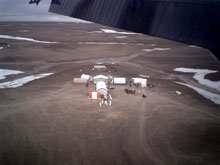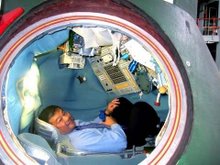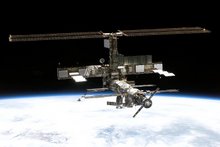NASA resisted the urge to launch STS-122 with less than well understood Engine Cut Off sensor anomalies last week. Was this the right thing to do? I think so, it showed courage and good engineering sense to delay the launch and figure out the root cause of the erratic sensor readings.
There are those who argue that we really don't need the ECO sensors in the Space Shuttle system. These sensors shut the main engines down if they detect an impending fuel depletion before planned Main Engine Cutoff (MECO). If the main engines were not cut off and allowed to run the fuel tanks dry, an explosion would almost certainly result, with a catastrophic loss of vehicle and crew. The argument is that the burn and fuel loading calculations are precise enough that such a situation could not happen realistically.
On the other hand, we have data that appear to indicate that we have come close to such events in the past.
In light of this uncertainty, I think NASA made the right call. What do you think?
Leroy Chiao
Devon Island Expedition

This blog features educational updates on my Devon Island Expedition of July 14-20, 2007. Other sites: spaceref.com/blogs/earthclassroom, www.marsonearth.org

Thursday, December 13, 2007
Subscribe to:
Post Comments (Atom)





2 comments:
I agree it's the right decision. Prioritizing the repair of a safety system (one designed for even the remotest of contingencies) reflects the culture shift at NASA they vowed in the wake of Columbia.
The way I see it, the only reason this is even a debatable choice is because of the looming deadline of the retirement of the Shuttle fleet. The possibility that important components may not make it to ISS because of budget and timeline concerns is what really puts the pressure on NASA, leading to poor decisions. And you know, that's a constraint that's completely arbitrary. The bad call is saying "We're retiring the fleet in 2010," instead of "No new missions; we're retiring when we finish what we started."
I'd agree with it being a good call. The knowledge of a faulty sensor to the public could have been disastrous if anything did go wrong, regardless of its relation to that system. A combination of "wreckless" engineers and a later malfunction of any system could jeopardize public support of future flights.. even the Ares lineup.
Post a Comment